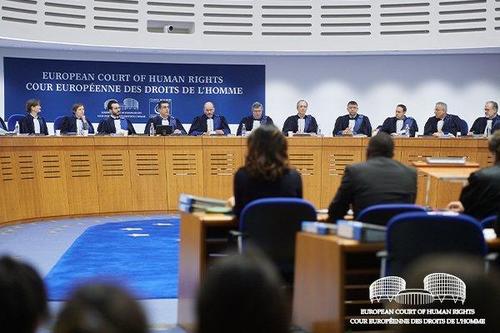Italian Court Fined For “Playing Down Gender-Based Violence”
There is an interesting decision out of the European Court of Human Rights. The court fined an Italian court for “playing down gender-based violence” in a ruling on a gang rape case.
The ECHR objected to references to the alleged victim’s sexuality, behavior, and the color of her underwear.
The case involved an alleged gang rap by seven men in a car after a party in 2008. The woman was a student who said that she was drunk at the time. The trial court convicted six of the men. However, the appellate court in Florence overturned the convictions in 2015.
What is striking is that the ECHR did not challenge that verdict but objected that the “language and arguments” used by the Florence court “conveyed prejudices existing in Italian society regarding the role of women.”
In the United States, such a fine of a court would be virtually impossible. Judges can obviously be reversed or reprimanded or even brought up on judicial conduct charges. However, the fining of a court is quite extraordinary. Indeed, in the United States, even parties are protected from defamation lawsuits for statements made in court. They are subject to court contempt sanctions.
The ECHR indicates that more such fines could on the way because courts are expected to “avoid[] reproducing sexist stereotypes” or “playing down gender-based violence and exposing women to secondary victimisation by making guilt-inducing and judgmental comments.”
The court must pay the woman 12,000 euros ($14,600) in compensation.
The concern about the ruling is not the merits but the means for such objections. Such fines could be used in a variety of areas to pressure or coerce courts. If courts can be sued by parties for references and evidence cited in opinions, it could chill some judges in writing frankly about what are viewed as flaws or contradictions in the record. It is important for all parties that courts be open and honest about such grounds for decisions. We can then address errors and confront bias in the form of reversals or reprimands. The risk of such reversals or reprimands is itself a deterrent. However, exposing courts to damages could create a countervailing financial pressure on decision making.
This is not the first controversy involving the ECHR. It ruled in 2010 that a women’s human rights were violated by being denied an abortion in Ireland. In 2018, it ruled that a pro-life advocate could not refer to abortion as “murder.” I was particularly critical of the court in 2018 when it ruled that a teacher could be prosecuted for comparing Muhammad’s marriage to a six-year-old girl as pedophilia. That decision was a direct attack on free speech and reflected a broad assault on free speech rights across Europe.
Tyler Durden
Sun, 05/30/2021 – 08:10
via ZeroHedge News https://ift.tt/34vwM3H Tyler Durden
